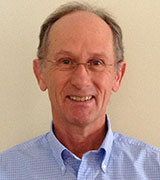Skip to Content
Speech-Language Pathology
- Speech and oral motor performance in neurological disease
- Parkinson's disease, spasmodic dysphonia, apraxia, oral dystonia, essential tremor
- Speech acoustics, speech physiology, auditory feedback
- Interaction between language and memory in typical and atypical development
- Role of memory in communication disorders
- Practice-based research in speech-language pathology
- Preschool speech and language disorders
- Communicative participation
- Intervention outcomes and effectiveness
- Speech-language pathology health systems and services
- Knowledge translation and implementation science
- Integrated Knowledge Translation/Research Co-Production
- Outcome measurement
- Test development
- Permanent childhood hearing loss
- Developmental stuttering
- Neurophysiology of speech and language development
- Motor learning
- Implicit and explicit mechanisms of attention
- Swallowing neural control
- Swallowing rehabilitation
- Swallowing impairment
- Acquired neurogenic language disorders/aphasia
- Cognitive-communicative disorders due to right hemisphere brain damage, traumatic brain injury, or progressive neurological disorders
- Cognitive and communicative aspects of healthy aging
- Language and cognitive assessment and intervention procedures
- Language development and disorders
- Practice-based research
- Autism
- Permanent childhood hearing loss
- Auditory neuroscience
- Speech intelligibility in dysarthria with an emphasis on conversational speech intelligibility
- Communicative participation in dysarthria
- Psychosocial outcomes
- Qualitative research methodologies
- Aging
- Dementia and neurodegenerative disorders
- Cognitive-Communication, Connected Speech, Language impairments in adults
- Remote monitoring and telehealth clinical trials
- Speech, voice and swallowing in head and neck cancer
- Swallowing rehabilitation
- Health-related quality of life
- Functional outcome measurement












